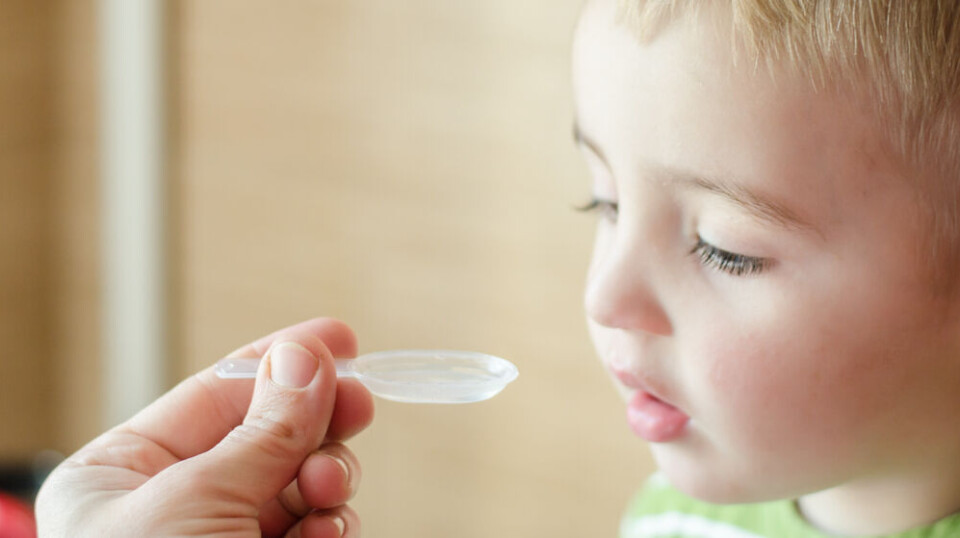-
DHL suspends high-value deliveries to US from France
The temporary measure, adopted on April 21, is the result of delays linked to increased clearance checks
-
E-gates updated in France as launch of EES checks approaches
Progress continues towards October start of delayed border checks
-
France’s wild garlic season is here – but foragers should beware toxic lookalikes
Spring brings the fragrant plant to woodlands nationwide. We explain what to look out for
Children in France prescribed too many medicines, says new study
France has one of the highest levels of drug consumption in Europe, study finds, with half of children aged under two taking more than nine medicines per year

French doctors prescribe too many medicines to children, running the risk of increased side effects and antibiotic resistance, two medical groups have warned in a new study.
Scientific group Epi-Phare (created by health authorities ANSM and CNAM) and research institute Inserm (Institut National de la Santé et de la Recherche Médicale) published the warning in scientific journal The Lancet Regional Health - Europe.
Using data from the national health system, including 14,510,023 children resident in France, researchers measured the frequency of paediatric prescriptions by GPs, dentists, and midwives. They found that 86% of children aged under 18 had received at least one prescription medication in 2018-2019.
This rose to 97% among children under six.
Painkillers, especially paracetamol, were the most prescribed type of medication, followed by antibiotics, nasal steroids, non-steroidal anti-inflammatory drugs, antihistamines, and oral steroids.
Half of children aged under two had taken more than nine medicines per year.
Steroids and antibiotics, in particular, are given far too routinely, the article said.
Antibiotics, steroids, and reflux medicines
Researchers identified three categories of medicine for which, they said, prescription levels do not match the levels of illness they are supposed to treat.
These are antibiotics, steroids, and drugs for oesophageal reflux, known as proton pump inhibitors (PPIs).
Antibiotics
The study showed that 40% of children are exposed to antibiotic treatment every year, which could cause needless antibiotic resistance.
Dr Marion Taine, an epidemiologist at GIS Epi-Phare, and the lead author of the study, said: “Even though prescriptions have dropped 12% in the past ten years, the use of antibiotics is a lot more common in France than in other countries with just-as-effective healthcare systems.
“The Netherlands gives five times fewer antibiotics [than France],” she said. Antibiotics are useless against viruses, which cause the majority of wintertime complaints.
Steroids
These anti-inflammatory medicines run the risk of worsening an undetected bacterial infection, especially when taken orally. To avoid this, they should be prescribed for very specific cases, such as severe asthma.
Yet, they are often used wrongly to treat minor ear, nose, and throat infections for children aged six and under, the study said.
They are particularly misused as a nasal decongestant, the authors said.
French doctors are five times more likely to prescribe steroids than American doctors, and 20 times more likely than Norwegian doctors.
Dr Taine said: “Their combined prescription in different forms (oral, nasal, inhaled, cream) exposes [patients] to risks of adrenal insufficiency in particular, and the long-term consequences of repeated use in small children are not known.”
Reflux medicines
The third category is drugs for oesophageal reflux, known as proton pump inhibitors (PPIs).
These are particularly overprescribed for infants, the study said. Dr Taine said: “These treatments are not recommended and only tolerated in certain cases, such as babies under one, as they are suspected of causing unwanted side-effects, notably bone fractures.”
Prescriptions of this type of medicine for infants has doubled in France in the past 10 years, figures show.
A cultural choice
Overall, the number of medicines being prescribed is stable in France, the study found.
This is despite several campaigns to reduce the number of tablets and syrups being given to children, as seen in the recommendations to lower antibiotic prescriptions and ban cough syrup for children under two.
Dr Fabienne Kochert, a paediatrician in Orléans (Centre-Val-de-Loire), has sought to explain why French levels of prescription differ so much from other countries. She suggested it could be because most children are seen by a GP, rather than a specialist paediatrician.
She told Le Figaro: “We know that the more a doctor is trained in the specifics of young childhood, the lower the tendency to prescribe. But 80% of children are seen in consultations by GPs.”
Dr Julie Chastang, of the children’s department at GP authority le Collège de la médecine générale, and GP in Champigny-sur-Marne (Ile-de-France), said that overprescription for children is more of a “cultural choice”, rather than a sign of difficulties within the French health system.
She said: “Doctors receive contradictory messages about antibiotics. Unlike other countries such as Italy, the Netherlands, and the US, French health authorities suggest, for example, systematic antibiotic use for acute middle ear problems in children under two.
“To treat recurrent baby crying, we should offer home support, rather than PPIs. There is very little parental support in France.”
Lead author of the study, Dr Taine, concluded that it is very important for the country to gain better understanding of GPs’ prescription habits.
She said: “Today, the safety profiles of several medicines used in paediatrics are still only partially known. That’s why prescriptions need to be reasonable.”
Related stories
Pharmacists in France allowed to renew and adjust repeat prescriptions
Covid France: GPs expected to get lists of unvaccinated patients
























